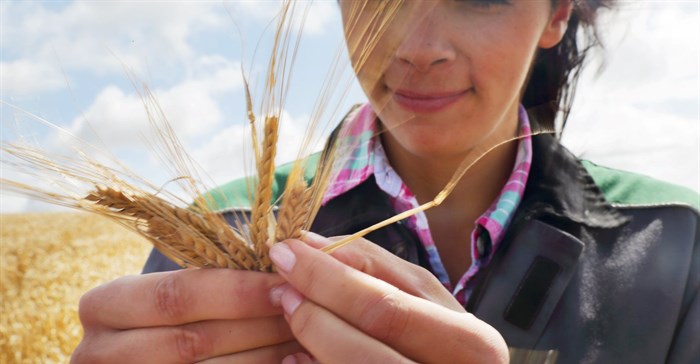
Top stories





Energy & MiningGlencore's Astron Energy gears up with new tanker amidst Sars dispute
Wendell Roelf 11 hours

More news


















Logistics & Transport
Uganda plans new rail link to Tanzania for mineral export boost










The study – of 707 maize-farming households in western Kenya – found that women’s empowerment in agriculture significantly increased maize productivity.
The research supports the view that enhancing women’s representation in agriculture is not simply about narrowing the gender gap, but potentially affecting the productivity benefits for organisations and communities.
This in line with the African Union’s Agenda 2063 aspirations for "a prosperous Africa based on inclusive growth and sustainable development".
Through a programme known as the Comprehensive African Agricultural Development Programme (CAADP), the African Union (AU) advocates for member states to place emphasis on African ownership and women leadership to set the agricultural agenda and support agricultural change.
The Food & Agriculture Organisation (FAO) of the United Nations reports that almost half of the agriculture workforce in sub-Saharan Africa are women, but that their contribution tends to be skewed towards unpaid, seasonal and part-time work.
Bringing women into the formal agricultural economy is, therefore, a significant opportunity for achieving gender balance in the sector, and unlocking the productive potential of women for the broader benefit of society.
Within this context, women play a critical, transformative role in agricultural growth in developing countries. There is a growing acceptance that women have a positive contribution to make to all sectors of the economy.
The experience of CHEP, a local supply-chain solutions organisation also engaged in the agricultural sector bears this out.
CHEP is a global provider of reusable supply-chain platforms including wooden pallets and is involved in managing forestry plantations and a sawmill to supply its products.
"We strive for women’s empowerment in all of our operations," says Gordon McKenzie, CHEP forestry manager. "We have found that where women are given opportunities, they grab them with both hands and contribute positively to the effectiveness of our business."
Thabisile Molefe, 35, a forester at CHEP, was one of those given such an opportunity. She oversees contractors tasked with felling trees at a plantation in Underberg, KwaZulu Natal, amongst other tasks.
The young graduate grew up in the district, but initially struggled to find work. Eventually, she found a job in 2013 at a forestry contractor.
Molefe joined CHEP in 2016. She has received regular training, and today oversees teams of colleagues and contractors managing and felling trees. Molefe also manages the burning of forest undergrowth and ground cover. She describes her work as “rewarding, but challenging”.
In her time at CHEP, Molefe has completed training courses on management, supervisory development and fire management. The married mother of one holds a National Diploma in Forestry and plans to continue studying, towards a BTech in Environmental Health and Safety in Forestry.
"I have experienced challenges because men are sometimes reluctant to accept a woman’s authority," says Molefe. "However, my co-workers and I have come to understand each other, and today we know and respect the roles we play in the operation."
Molefe is part of a growing female staff complement at CHEP’s sawmill, where female staff sometimes outnumber men.
"Women’s empowerment and gender transformation have certainly been a boost for our operations," says Lisa Banda, CHEP HR director. "Women like Thabisile are an asset to our community and our company. We are constantly looking at ways to leverage their potential, while investing in them."